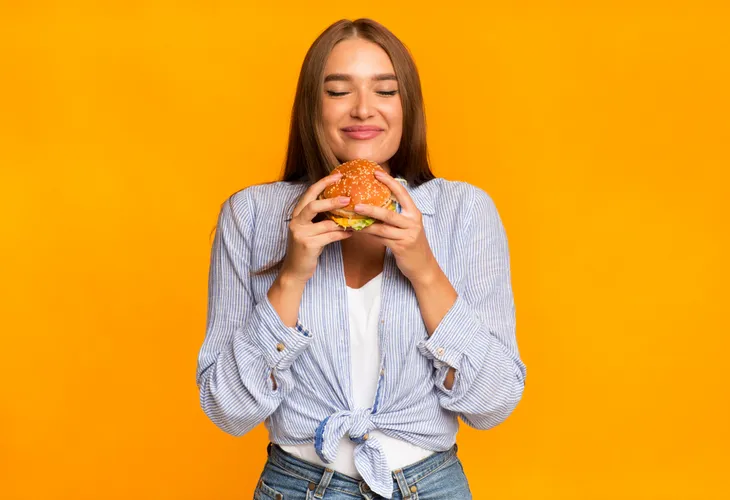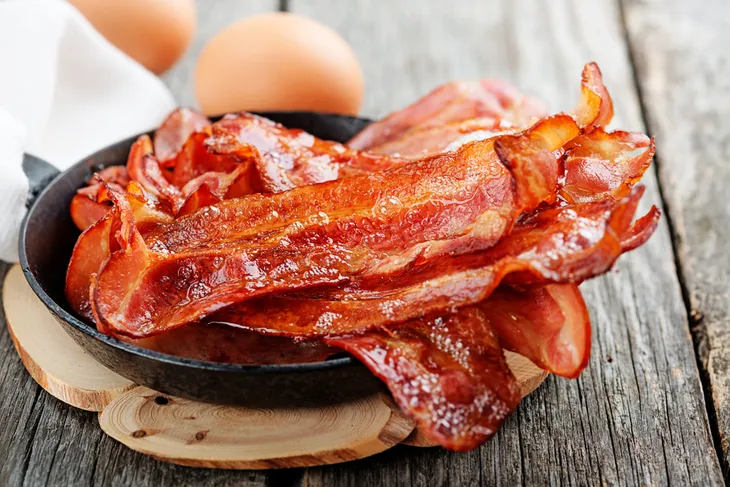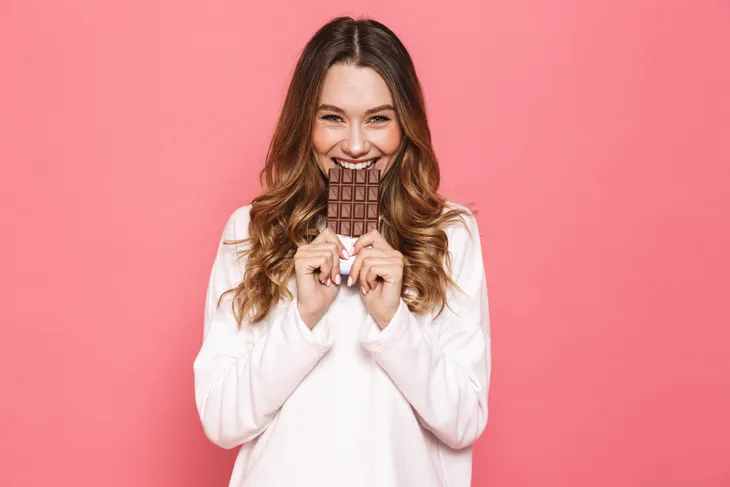I was on a good stretch of going to the gym after work, every weeknight, eating a healthy dinner, no snacks before bed. I even hit a hot yoga class on Sunday morning. Then all it took was a saunter past a neighborhood bakery on Monday afternoon and I was elbows deep in chocolate chip almond butter cookies. And I ate them all!
To say the smell of fresh baked cookies has a deep and profound affect on me would be an understatement. I go bonkers hungry when I smell cookies to the point where I imagine myself sprouting blue Cookie Monster fluff in Pavlovian response to their sweet, carby scent. Your delicious food smell might differ from mine, but there’s no argument that scent can make you go weak at the knees with temptation…
What’s Smell Got to Do with it?
Food cravings and smell go hand in hand. So much so that Dr. Alan Hirsch, researcher at Chicago’s Smell & Taste Treatment and Research Foundation claims that food marketers use this technique to synthesize the smell of products in and around stores. What, you don’t believe him? I dare all the cinnamon bun lovers out there to walk past a Cinnabon and hold their composure.
According to Dr. Hirsch, by “pumping in the smell to induce cravings…you salivate just imagining eating those cookies fresh out of the oven.” He points to companies like ScentAir, who artificially duplicate the smell of tempting food products like those cinnamon buns, burgers, popcorn, and even ice cream and waffle cones using “aroma marketing” for restaurants like 7-Eleven and McDonalds.
Mmmmmm…Bacon
Most brunch lovers will agree that you had them at the word bacon…but it’s the smell of bacon that really matters. It’s hard to resist a meaty scent so powerful and permeating that it can literally take you by the nose, and lead you out of bed and straight into the kitchen.
As food scientist and America’s Test Kitchen science editor, Guy Crosby, explains the irresistible scent of cured and smoked bacon is produced during the cooking process. As the meat sizzles, the cell tissue membranes (which contain fatty acids) breakdown and send off a literal smorgasbord of flavourful ketones, aldehydes, and furans (compound smell and taste molecules) that produce those indistinguishable buttery, grassy, nutty, and sweet caramel bacon notes.
Cookies, Cake, Muffins, Cupcakes, and Pie…Oh My!
For many of us, a fresh baked batch of applesauce muffins can bring us back to the warm safety of Grandma’s kitchen. These deep feelings of nostalgia harken back to the past, when life was happy, safe, and even innocent. According to numerous health experts that’s exactly why we gobble down certain foods over others when we’ve had a particularly vulnerable day.
A group of psychologists from the University of the South studied the science of why we crave comfort food and published the findings in this 2015 Time magazine article. They claim intuitive cravings related to certain so-called comfort foods “remind us of our social ties…and help us feel less lonesome when we feel socially isolated.”
Pasta and Sauce
If you tend to dive head first into a bowl of the zestiest, garlicky pasta after an emotional day at the office you’re not alone. However, you may be victim to the Science of Food Smells, in which author, Riccardo Meggiato describes smell as the “most direct of the five senses”. Just a whiff of the rich aroma of a thick tomato sauce atop buttery noodles captures the appetite along with the very powerful olfactory receptors.
Meggiato explains that the olfactory receptors “consist of 5 million cells packed with cilia…[and] as soon as they come into contact with the odorous molecules [they] transmit a message via the olfactory never straight to the brain”. The direct and savory route between nose and brain is the reason why a brief smell can trigger an emotion and deem a dish delicious or unappetizing.
Chocolate!
I could never leave chocolate off a list of tempting food smells. Whether you like it baked in a tray of brownies or oozing from the top of a double chocolate sundae, there’s no denying that chocolate has got to be tops on the list of food scents most likely to make us salivate.
According to Dr. Amy Jo Stavnezer, professor of psychology and neuroscience at Ohio’s College of Wooster. almost 50-percent of American women admit to serious chocolate cravings a few days prior to a few days into menstruation. Dr. Stavnezer blames these chocoholic desires on three things: firstly on fluctuating estrogen and progesterone hormones (when female hormones are at their lowest), secondly on stress response (related to menses and other), and thirdly on the pleasure release (from the chemical dopamine) gained from a brain reward chemical.
Home Sweet Smell
While you may crave the scent of frying seafood if you grew up in Maine, spice cookies if you once resided in Connecticut, sizzling barbecue if you’re from California, and peach cobbler if you call the state of Georgia home, research shows that food cravings based on smell, much like homey memories, differ depending on where you once hung your hat.
According to researchers from the Smell & Taste Treatment and Research Foundation, in Chicago, the breakdown of tempting scents can be literally broken down by U.S. region, based on learned behaviors passed on from generation to generation. The study findings revealed that “food choices [are based on] family recipes [and] have an actual primitive incorporation into the self of the nostalgic object”.









